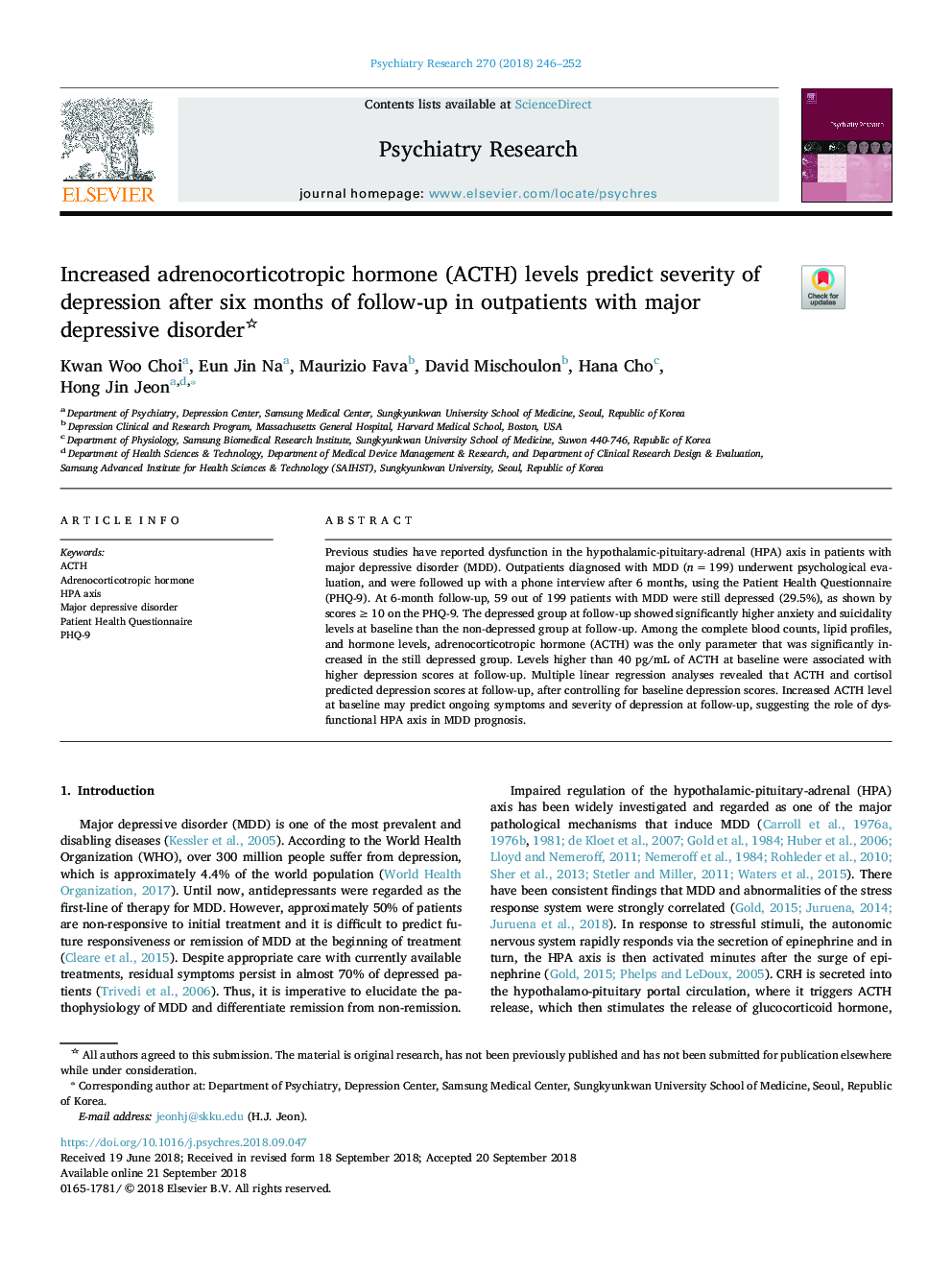| Article ID | Journal | Published Year | Pages | File Type |
|---|---|---|---|---|
| 11024083 | Psychiatry Research | 2018 | 7 Pages |
Abstract
Previous studies have reported dysfunction in the hypothalamic-pituitary-adrenal (HPA) axis in patients with major depressive disorder (MDD). Outpatients diagnosed with MDD (nâ¯=â¯199) underwent psychological evaluation, and were followed up with a phone interview after 6 months, using the Patient Health Questionnaire (PHQ-9). At 6-month follow-up, 59 out of 199 patients with MDD were still depressed (29.5%), as shown by scoresâ¯â¥â¯10 on the PHQ-9. The depressed group at follow-up showed significantly higher anxiety and suicidality levels at baseline than the non-depressed group at follow-up. Among the complete blood counts, lipid profiles, and hormone levels, adrenocorticotropic hormone (ACTH) was the only parameter that was significantly increased in the still depressed group. Levels higher than 40 pg/mL of ACTH at baseline were associated with higher depression scores at follow-up. Multiple linear regression analyses revealed that ACTH and cortisol predicted depression scores at follow-up, after controlling for baseline depression scores. Increased ACTH level at baseline may predict ongoing symptoms and severity of depression at follow-up, suggesting the role of dysfunctional HPA axis in MDD prognosis.
Keywords
Related Topics
Life Sciences
Neuroscience
Biological Psychiatry
Authors
Kwan Woo Choi, Eun Jin Na, Maurizio Fava, David Mischoulon, Hana Cho, Hong Jin Jeon,
